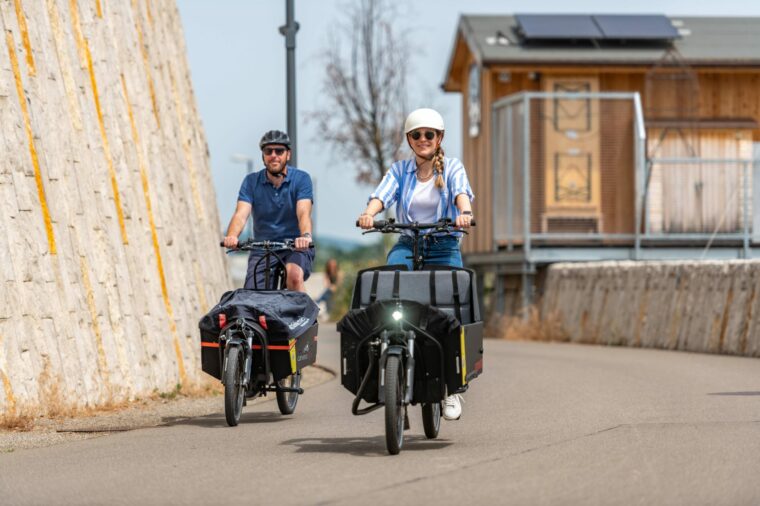4 – 6 September 2024 | ETH Zürich, Hönggerberg, HIL E3 and HIT.
Today’s design reflects the car-oriented consensus, which was formulated between the 1930’s and 1950’s and adopted around the world since then. The climate crisis challenges this orientation and asks for designs which emphasize the micro-mobility. The three days between September 4th and 6th bring together experts, students, and the general public to think together how such a future could look like. Talks, discussions, and interactive workshops give the chance to learn together of how to overcome the hurdles facing a climate friendly environment.
Keynote: Sarah Williams, Associate Professor of Technology and Urban Planning, MIT
Introduction by: Simone Brander, Stadträtin Zürich
Further speakers: Michael Walczak, Post-doctoral researcher, ETH Zurich, Klumpner Chair of Architecture and Urban Design: 4D Digital Twins: from AI to Climate Corridors; Andres Sevtsuk, Associate Professor of Urban Science and Planning, MIT: The Green Mobility City; Paul Cureton, Senior Lecturer in Design (People, Products, Places), Lancaster University: Gaming, Digital Twins and the Future City; Michael Wicki, Post-doctoral researcher, ETH Zurich, Kaufmann Chair of Spatial Development and Urban Policy (SPUR): Pedaling Towards Acceptance: Navigating Cleavages and Policy-Divides in the E-Bike City Transition – Public Opinion Insights from a Large-Scale Survey
Programme
The programme with guests, worshops, and lectures will be online in Spring 2024.
Workshops
1) Studio Mobil
Michael Walczak & Hubert Klumpner, Architecture & Urban Design, ETH Zürich
The «Studio Mobil» is imagining a visionary outdoor laboratory, engaging ideas around the future of cities. The mobile laboratory «Studio Mobil» is equipped with a LIDAR system and has a 3D head that allows for volumetric climate scanning. The output of these on-site measurements includes wind direction, wind speed and turbulence measurements for any site. During the NSL Forum, «Studio Mobil» is setting up an outdoor workshop stage, bridging quantitative research in urban design with a qualitative dialogue among workshop participants, students, and faculty along with guests. Workshop participants will actively engage in using «Studio Mobil» to collect their own climate data, process large-scale GIS information and visualize the results in 4-dimensional Virtual Reality (VR) Environments using Game Engine Technology for evidence-based decision-making techniques.
Studio Mobil Wind Measurement
2) Designing Streets for People: Bridging Citizen and Expert Perspectives on Urban Re-Design
Michael Wicki, Spatial Development and Urban Policy (SPUR), ETH Zürich
This workshop discusses the relationship between street design and public perception, focusing on citizen preferences. Drawing on a street design allocation experiment conducted within a large-scale survey, participants will first engage with various street-level scenarios, evaluating their perceived impact on urban mobility and livability. By contrasting survey findings, the session aims to mirror the participants evaluation with citizen preferences, and potentially identify both divergences and convergences in assessment. Ultimately, the workshop aims to shed light on urban design preferences, potentially informing a nuanced approach to creating inclusive, sustainable urban environments.
3) Designing Traffic Networks in the E-Bike City
Lukas Ballo, Institute for Transport Planning and Systems (IVT), ETH Zürich
Allocating a large proportion of road space to small vehicles requires a substantial reorganization of transport networks. The narrow streets of Zurich can rarely accommodate a complete dedicated infrastructure for all modes of transport. The E-Bike City project team has developed a method for solving this problem by testing alternative traffic schemes. E.g., making all streets one-way or dedicating certain streets entirely to cycling, while providing car access on other streets. In this workshop, we will evaluate different approaches to providing a high-quality cycling infrastructure while at the same time providing access to every building for those who need it.
4) E-Bike City Workshop
Information to follow
5) Gamification
Paul Cureton, Lancaster Institute for the Contemporary Arts, Lancaster University
Gamification involves applying game design principles to non-game settings. Such methods are important in the creation of urban digital twins. This workshop will delve into how creating game-based virtual worlds can help design urban digital twins and involve the public in participatory planning. Participants will utilise a city-building game and GIS-based tools to analyse spatial layouts, mobilities, and planning concepts while designing a future city in Zurich.
6) No Major Construction Development without a Mobility Concept
Jens Kirchhoff, CEO V-Locker AG
Without a good mobility concept, (residential) construction projects will no longer be won or built in the coming years – why concept development is nevertheless faltering.
Binding regulations aimed at promoting micromobility in urban areas are becoming increasingly common throughout Europe and in Switzerland. Players in the construction sector are under pressure to act. However, the supply of concrete approaches in the „battle for the distribution of traffic and parking space“ in urban areas is limited and reliable concepts are often in short supply.
In this workshop, two use cases from the Netherlands will be presented first, to demonstrate where different tasks and requirements have been transformed into exciting, forward-looking solutions. This will be followed by a plenary discussion on the obstacles faced by such concepts in Switzerland, the lack of data and information on their applications, as well as a short-list of promising approaches and infrastructure building blocks for solutions.
